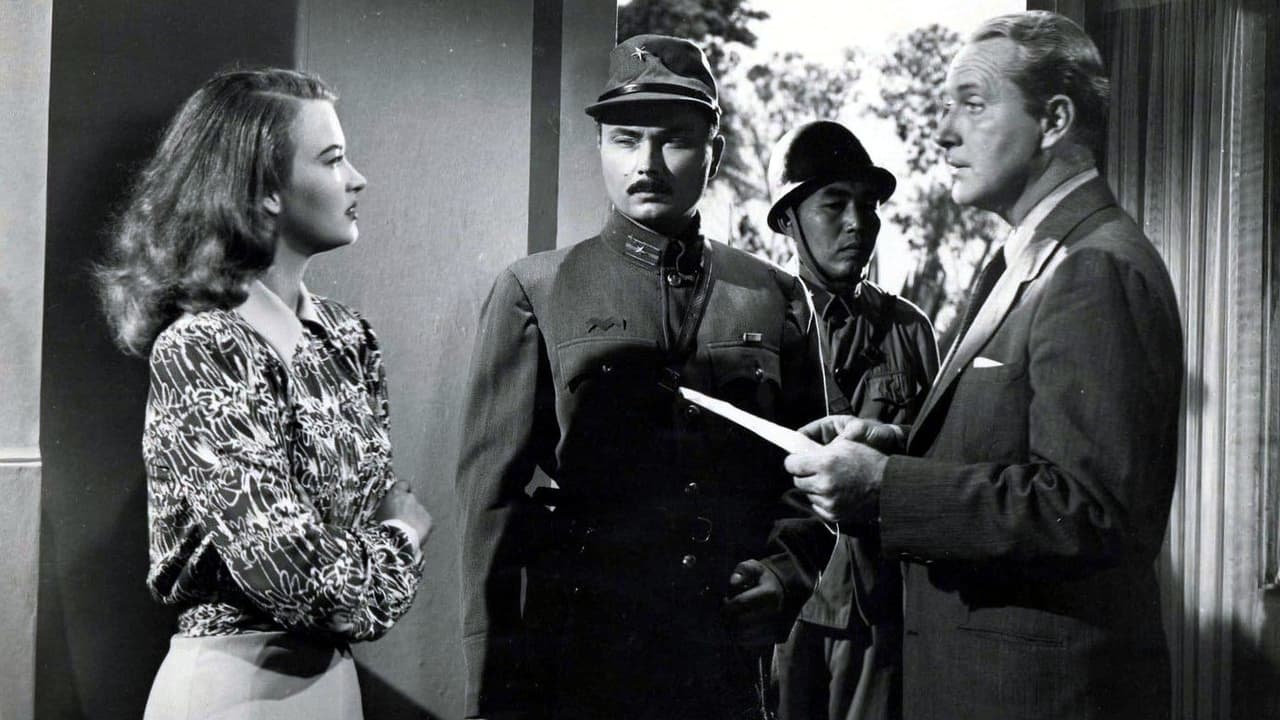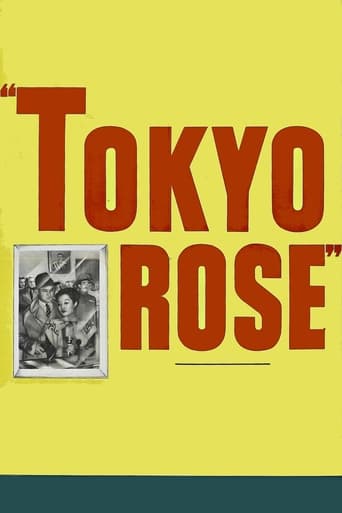SpecialsTarget
Disturbing yet enthralling
Taha Avalos
The best films of this genre always show a path and provide a takeaway for being a better person.
Roxie
The thing I enjoyed most about the film is the fact that it doesn't shy away from being a super-sized-cliche;
Jerrie
It's a good bad... and worth a popcorn matinée. While it's easy to lament what could have been...
mark.waltz
While the end of the war was still settling by the time this was released, it does seem to be just a few years older, more appropriate for 1943/44 than 1946. With the bombings of the year before, this is more rubbing of salt on the wounds of the Japanese, certainly no call for a truce or peace. The voice of American born Lotus Long provides the characterization of the hated title character whose smooth talking voice seemed soothing in spite of the fact that she caused much damage as her infamous radio program helped dash the hopes of American p.o.w.'s in World War II. This is an obvious fictional story, an exploitation of revenge by American soldier Byron Barr who vows to kill her after her actions caused the death of his buddy.If this has any decent purpose, it's to enlighten American audiences to the presence of a Japanese underground, against their own government, assisting Barr in his mission. It's a cheaply made and basically crude production from Pine-Thomas whose productions had their release from Paramount, obviously to fill out the lower half of their double bills. This is the type of film that probably had audience members walking out if they had already seen the big feature, since this had been done hundreds of times between 1941 and 1945 and a heck of a lot better. The ending seems like an add-on when circumstances dated what was already written or filmed, and does not make it any more timely. The physical appearance of Long as the infamous broadcaster in one scene provides only a little bit of tension which really lets the viewer down in the conclusion.
gordonl56
TOKYO ROSE - 1946 Quickly paced wartime spy thriller set in Japan. A group of American p.o.w.'s are rounded up from several camps and taken to Tokyo. Once there, they are cleaned up, given new clothes and plenty of food. It seems that the prisoners are to be paraded in front of the neutral press corp during a broadcast of "TOKYO ROSE".Richard Loo, in a role he played many times, is the Japanese Major in charge. However, just as the broadcast starts, an American bombing raid drops several bombs on the radio station. One of the prisoners, Byron Barr, escapes after exchanging clothes with a neutral reporter who had been killed in the bombing.One of the other neutrals take him to the Japanese underground. Barr and the head of the underground, Keye Luke, hatch a plan to kidnap "TOKYO ROSE" and send her back to the U.S. by submarine. Yes! It is as silly as it sounds! It does however move along at a good pace and fits the bill as a hour long time-waster.This low rent wartime spy drama was made by the "Dollar Bills", William Thomas and William Pine. The two Bills were known to be tight with a buck as they churned out low-budget fare for the bottom of the double feature. They were so good at this that they ended up in charge of the b-film unit at Paramount studios.Look close and you can catch future PINK PANTHER director, Blake Edwards, in a small role.

